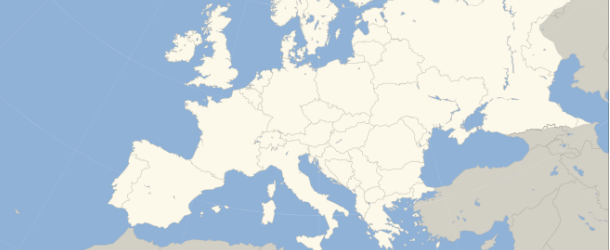Europe must increase its current momentum to remain competitive in the quantum ‘space race’

(TechCrunch) Alice Pannier is a Research Fellow at the French Institute of International Relations (IFRI), where she leads the Geopolitics of Tech program. IQT-News summarizes her recent article here.
With several nations rushing to develop their own quantum systems, the quantum competition has started to resemble a new “space race.”
With the U.S. and China leading the way, European countries are feeling the pressure to step up their game, and several countries, as well as the European Union itself, have made a big push to invest in this space. But are European efforts too late and too fragmented to compete with the two tech giants?
Driving China, the U.S. and other countries is a fear that lagging behind in quantum computing will pose cybersecurity, technological and economic risks.
First, a fully functioning quantum computer could allow an adversary to break any public encryption key currently in use.
Second, European governments fear the consequences of becoming caught between American and Chinese quantum competition. Chief among those is quantum tech becoming subject to export restrictions. These should be coordinated among allied countries.
Today, America’s European partners are concerned that in a tech cold war, they may struggle to access critical technologies or trade technologies with third countries. And as the list of restricted technologies grows, European companies feel the financial consequences in their international value chains.
But there are concerns about China as well. China has posed other types of risks to countries’ technological development, including challenging intellectual property rights and academic freedom, and it is well versed in economic coercion.
A final risk is economic. A disruptive technology like quantum computing will have massive industrial implications.
Is Europe up to the task?
Unlike in most other digital technologies, Europe is well positioned in the global quantum race.
The U.K., Germany, France, the Netherlands, Austria and Switzerland all have significant quantum research capacities and flourishing startup ecosystems. Their governments, as well as the European Union, are making significant investments in quantum computing hardware and software and in quantum cryptography.hat stands in Europe’s way to become a serious challenger to the U.S. and China?
For one, the challenge for Europe is less fostering the emergence of startups but keeping them. Most promising European startups have a tendency not to grow on the continent due to inadequate venture capital. PsiQuantum, a leading British startup, settled in California in search of capital.
To counter that risk, European governments and the European Union have launched several initiatives in emerging and disruptive technologies with the goal of building European “technological sovereignty.” But then, does Europe even adopt its own technologies? EU procurement rules do not necessarily favor European suppliers in contrast to the U.S. “Buy American Act.”
If Europe is to be competitive in quantum with the U.S. and China in the years to come, it must not just maintain its current momentum but increase it.



















